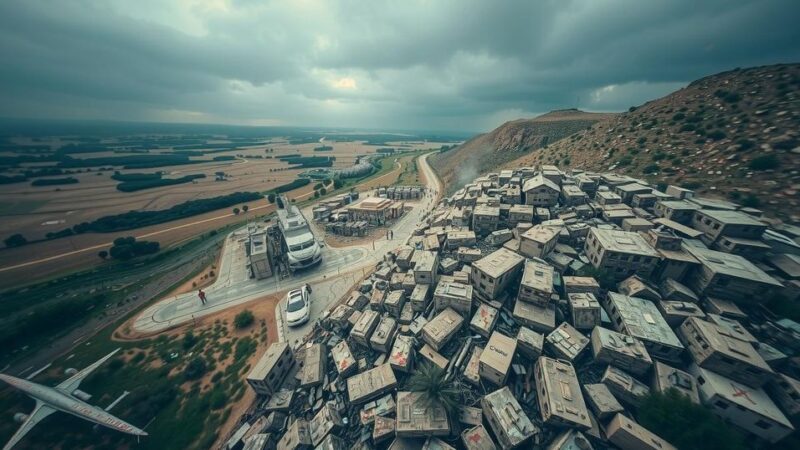The COP29 climate summit in Azerbaijan is experiencing growing discontent over slow climate finance negotiations, with stakeholders calling for urgency. Leaders emphasize the critical need for developed nations to commit to increased funding, especially as the world approaches potentially catastrophic climate scenarios. The summit is seen as pivotal for future climate action as nations prepare for COP30 in Brazil.
As the COP29 climate summit in Baku, Azerbaijan, approaches its conclusion, stakeholders express significant dissatisfaction regarding the insufficient advancements in climate finance negotiations. Mukhtar Babayev, the President of COP29, urged delegates to accelerate their efforts, emphasizing the necessity for swift and collaborative action among global ministers. He stated, “It’s time for them to move faster. This week we will welcome ministers from around the world as the negotiations reach their final stage.” Central to the discussions is the vital topic of climate finance, which pertains to funding for developing nations to adapt to climate change and transition from fossil fuels. Although it is anticipated that COP29 will establish an ambitious new funding target, many affluent nations appear hesitant to commit, with existing estimates placing the required climate finance at over $1 trillion annually. The current goal of $100 billion per year, set in 2009, was only achieved in 2022. Diego Balanza of Bolivia criticized wealthier nations for a decade of unmet commitments, asserting that developing countries bear the brunt of climate change impacts due to the historical emissions produced by developed nations. Balanza noted, “For us as developing countries, our people’s lives, their very survival and their livelihoods, are at stake.” He further criticized that much of the aid offered thus far consists of loans rather than grants, thus jeopardizing the economic stability of developing nations. The slow pace of negotiations has drawn criticism from multiple observers. Mohamed Adow, director of Power Shift Africa, condemned the lack of direction, describing COP29’s first week as one of the least productive he has experienced in the past 15 years. “There has been very limited progress on climate finance and even on the rules around carbon markets and how the world is going to cut emissions,” he stated. Simon Stiell, the United Nations Climate Change executive secretary, urged participants to avoid theatrical displays and ensure substantial progress. He stressed, “climate finance is not charity. It is 100% in every nation’s interest to protect their economies and people from rampant climate impacts.” To facilitate important political decisions, he called for a resolution of less contentious issues in the early stages of the week. An ambitious agreement on climate finance at COP29 is crucial for advancing negotiations toward next year’s COP30 in Brazil, where countries are expected to present their action plans for reducing greenhouse gas emissions, striving to adhere to the 1.5°C warming limit dictated by the Paris Agreement. Alarming projections indicate a potential catastrophic warming of 2.7°C by century’s end if current trends persist. Concerns surrounding the ongoing negotiations are amplified by the recent election of Donald Trump, whose prior withdrawal of the United States from the Paris Agreement casts uncertainty on the global cooperative efforts to address climate change. Adow noted, “I think the cloud hovering over these talks is the known unknown, around the election of Donald Trump and what the Trump administration is going to do.” The COP29 talks are expected to conclude on Friday, with a potential extension should a viable agreement become apparent.
The COP29 climate summit, like its predecessors, aims to address crucial challenges related to climate finance, a significant aspect of global climate policy. Climate finance refers to funding provided to developing nations to mitigate climate change impacts and transition to sustainable practices. The summit highlights the ongoing disparities in commitments between developed and developing nations regarding financial aid and support needed to combat climate change effectively. The necessity for transparent and robust financial mechanisms is emphasized, alongside the need for immediate action to curb rising global temperatures.
In summary, the COP29 climate summit has faced mounting frustrations regarding inadequate progress on climate finance negotiations, prompting urgent calls for action from both leaders and representatives of developing nations. The summit’s outcomes will play a pivotal role in determining the future direction of global climate policy, especially as nations prepare for the forthcoming COP30 in Brazil.
Original Source: www.voanews.com



